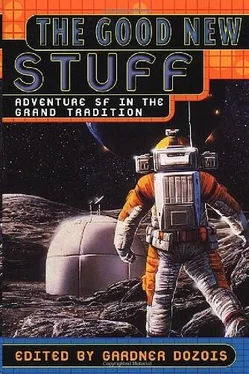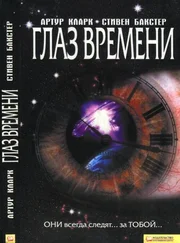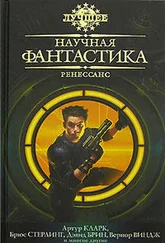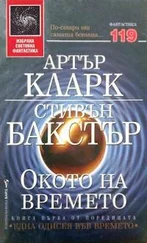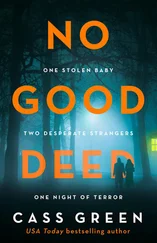Стивен Бакстер - The Good New Stuff
Здесь есть возможность читать онлайн «Стивен Бакстер - The Good New Stuff» весь текст электронной книги совершенно бесплатно (целиком полную версию без сокращений). В некоторых случаях можно слушать аудио, скачать через торрент в формате fb2 и присутствует краткое содержание. Год выпуска: 2002, ISBN: 2002, Издательство: St. Martin's Griffin, Жанр: Фантастика и фэнтези, на английском языке. Описание произведения, (предисловие) а так же отзывы посетителей доступны на портале библиотеки ЛибКат.
- Название:The Good New Stuff
- Автор:
- Издательство:St. Martin's Griffin
- Жанр:
- Год:2002
- ISBN:0-312-26456-9
- Рейтинг книги:3 / 5. Голосов: 1
-
Избранное:Добавить в избранное
- Отзывы:
-
Ваша оценка:
- 60
- 1
- 2
- 3
- 4
- 5
The Good New Stuff: краткое содержание, описание и аннотация
Предлагаем к чтению аннотацию, описание, краткое содержание или предисловие (зависит от того, что написал сам автор книги «The Good New Stuff»). Если вы не нашли необходимую информацию о книге — напишите в комментариях, мы постараемся отыскать её.
The Good New Stuff — читать онлайн бесплатно полную книгу (весь текст) целиком
Ниже представлен текст книги, разбитый по страницам. Система сохранения места последней прочитанной страницы, позволяет с удобством читать онлайн бесплатно книгу «The Good New Stuff», без необходимости каждый раз заново искать на чём Вы остановились. Поставьте закладку, и сможете в любой момент перейти на страницу, на которой закончили чтение.
Интервал:
Закладка:
At the last, it threw its tongue at Mary, falling far short. "Dirty human cow," Gota'lannshk screamed at her. Then… nothing.
Heat death.
Drin lay in the shallows panting. Fiery pain shot through him. He could taste his own blood again; some of Go Ton's handiwork had come loose. He saw Mary prone, the shaft of the harpoon still projecting bloodily from her leg, her elbows in the sand, his gun in her hands, still aimed at the sea rover. She must have put a hundred bullets in his opponent's knee, but now she shook and moaned. He knew that killing a Do'utian over this was the very last thing she had wanted.
He wished to comfort her, but he was tired. Very, very tired.
His next awareness was of a hotness on his neck. He opened his right eye and looked back. Mary was there, flattened against his neck, gently calling his name.
"Mary," he managed to say, as softly as he had ever said anything, "I'm awake. I'll be OK."
She was apparently having trouble breathing, but turned to his eye and said, "Oh, Drin. Oh, Drin. It's— it's so hard to get my arms around you." Despite her appearance, he somehow knew she was happy.
Noise and smell intruded. The sky over the island beach was filled with both aircraft and Kleth. The death smell of Glodego'alah was there, among the smell of many beings, and the sound of many voices, Kleth, human, and Do'utian. He recognized Do Tor's and Go Ton's among them, and took a ragged but deep breath of satisfaction. Everyone had come through, and, like rational, civilized beings, they were all discussing what was to be done next.
Robert Reed
GUEST OF HONOR
Robert Reed sold his first story in 1986, and quickly established himself as a frequent contributor to The Magazine of Fantasy & Science Fiction and Asimov's Science Fiction, as well as selling many stories to Science Fiction Age, Universe, New Destinies, Tomorrow, Synergy, Starlight, and elsewhere.
Reed may be one of the most prolific of today's young writers, particularly at short-fiction lengths, seriously rivaled for that position only by authors such as Stephen Baxter and Brian Stableford. And— also like Baxter and Stableford— he manages to keep up a very high standard of quality while being prolific, something that is not at all easy to do. Almost every year throughout the mid-to-late nineties, he has produced at least two or three stories that would be good enough to get him into a Best of the Year anthology under ordinary circumstances, and some years he has produced four or five of them, and so often the choice is not whether or not to use a Reed story, but rather which Reed story to use— a remarkable accomplishment. Reed stories such as "The Utility Man," "Birth Day," "Blind," "A Place With Shade," "The Toad of Heaven," "Stride," "The Shape of Everything," "Guest of Honor," "Decency," "Waging Good," and "Killing the Morrow," among at least a half-dozen others equally as strong, count as among some of the best short work produced by anyone in the eighties and nineties. Nor is he non-prolific as a novelist, having turned out eight novels since the end of the eighties, including The Leeshore, The Hormone Jungle, Black Milk, The Remarkables, Down the Bright Way, Beyond the Veil of Stars, An Exaltation of Larks, and, most recently, Beneath the Gated Sky.
In spite of this large and remarkable body of work, though, Reed remains largely ignored and overlooked when the talk turns to the hot new writers of the nineties, and only recently is he beginning to get on to major award ballots with stories like "Chrysalis," which is on the final Nebula ballot as I type these words. Like Walter Jon Williams and Bruce Sterling, no one Robert Reed story is ever much like another Robert Reed story in tone or subject matter, and it may be that this versatility counts against him as far as building a reputation is concerned. John Clute, in The Encyclopedia of Science Fiction, noting that none of Reed's novels "share any background material or assumptions whatsoever," suggests that "today's sf readers tend to expect a kind of brand identity from authors, and it may be for this reason that Reed has not yet achieved any considerable fame."
It seems unfair that the range of an artist's palette should count against him— but Reed's name is slowly percolating into the public awareness here at the end of the nineties, and I suspect that he will become one of the big names of the first decade of the new century coming up on the horizon.
Much of Reed's output takes him beyond our purview here, into fantasy, horror, and other types of science fiction (including some stuff strongly reminiscent of Galaxy-era social satire), but a great deal of his output is strongly centered within the traditions of the Space Adventure. In fact, like some other young writers of the nineties, including Paul J. McAuley and Stephen Baxter, Reed is producing some of the most inventive and colorful of Modern Space Opera, stuff set on a scale so grand and played out across such immense vistas of time that it makes the "Superscience" stuff of the thirties look pale and conservative by comparison: his sequence of novellas for Asimov's, for instance, "Sister Alice," "Brother Perfect," and "Mother Death," detailing internecine warfare and intricate political intrigues between families of Immortals with powers and abilities so immense that they are for all intents and purposes gods, or the sequence of stories unfolding in F&SF, Science Fiction Age, and Asimov's, including "The Remoras," "Aeon's Child," and "Marrow," involving the journeyings of an immense spaceship the size of Jupiter, staffed by dozens of exotic alien races, that is engaged in a multimillion-year circumnavigation of the galaxy.
And in the poignant and haunting story that follows, he shows us that while being the guest of honor at an important and high-powered function is usually a position to be desired, in Reed's decadent future world of ultrarich immortals, it's an honor you might be well advised to avoid— if you can.
Reed lives in Lincoln, Nebraska, where he's at work on a novel-length version of his 1997 novella, "Marrow."
One of the robots offered to carry Pico for the last hundred meters, on its back or cradled in its padded arms; but she shook her head emphatically, telling it, "Thank you, no. I can make it myself." The ground was grassy and soft, lit by glowglobes and the grass-colored moon. It wasn't a difficult walk, even with her bad hip, and she wasn't an invalid. She could manage, she thought with an instinctive independence. And as if to show them, she struck out ahead of the half-dozen robots as they unloaded the big skimmer, stacking Pico's gifts in their long arms. She was halfway across the paddock before they caught her. By then she could hear the muddled voices and laughter coming from the hill-like tent straight ahead. By then she was breathing fast for reasons other than her pain. For fear, mostly. But it was a different flavor of fear than the kinds she knew. What was happening now was beyond her control, and inevitable… and it was that kind of certainty that made her stop after a few more steps, one hand rubbing at her hip for no reason except to delay her arrival. If only for a moment or two…
"Are you all right?" asked one robot.
She was gazing up at the tent, dark and smooth and gently rounded. "I don't want to be here," she admitted. "That's all." Her life on board the Kyber had been spent with robots— they had outnumbered the human crew ten to one, then more— and she could always be ruthlessly honest with them. "This is madness. I want to leave again."
"Only, you can't," responded the ceramic creature. The voice was mild, unnervingly patient. "You have nothing to worry about."
Читать дальшеИнтервал:
Закладка:
Похожие книги на «The Good New Stuff»
Представляем Вашему вниманию похожие книги на «The Good New Stuff» списком для выбора. Мы отобрали схожую по названию и смыслу литературу в надежде предоставить читателям больше вариантов отыскать новые, интересные, ещё непрочитанные произведения.
Обсуждение, отзывы о книге «The Good New Stuff» и просто собственные мнения читателей. Оставьте ваши комментарии, напишите, что Вы думаете о произведении, его смысле или главных героях. Укажите что конкретно понравилось, а что нет, и почему Вы так считаете.
